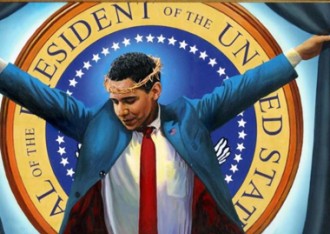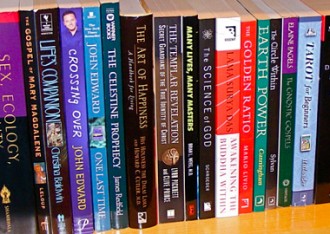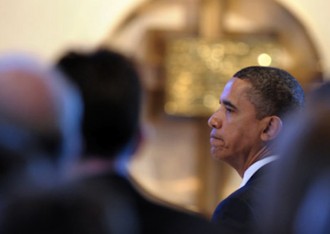Obama Inaugural Address Challenges Tea Party History
It’s Seneca, Selma, and Stonewall vs. conquest and exceptionalism.
Read MoreIt’s Seneca, Selma, and Stonewall vs. conquest and exceptionalism.
Read More
Logic is the key to the story. In this case, once we know how many thousands of Americans are killed by guns each year and know that places with the fewest guns have the fewest murders, it’s only logical to regulate gun ownership and possession. But even the most convincing logic can rarely defeat a rich, emotionally powerfully, historically deep-rooted myth. And the gun control advocates’ progressive myth is depressingly thin and emotionally weak compared to the thick, potent store of myth wielded by their opponents.
Read More
An RD holiday sampler of stories & viewpoints we would have liked to read in 2012.

Pundits fume, but the images of Obama as Jesus are out there. And they mean something.
Read MoreTime for a moral realignment.
Read More
There is no “Jewish vote.” Jews vote. A small number of them vote for Republicans. Most of them vote for Democrats. Every cycle the Republicans try to improve on their last performance, but Jews are overwhelmingly liberal. So Republicans try to draw them in by talking about Israel, an issue very few of them vote on, but an issue that has the added benefit of helping Republicans shore up their evangelical base.
Read MoreBottom line: hyping age-old anti-Mormon suspicion does nothing to combat racism in the presidential elections. Sullivan should know better.
Read More
If there is one thing people need during a national disaster, it is functioning and effective government. If there is one time we need redistributive justice, it is during a crisis. Much of politics perhaps just comes down to what is, and is not, a crisis—a hurricane I hope we can all agree on. But what about climate change? Or health care? What is life-threatening? What is an emergency?
Read More
You can call them “unaffiliated,” as in a recent Pew poll, or “nones,” or even just “not very religious.” A brand new poll by PRRI/Brookings divides this group further (and somewhat counterintuitively) into “unattached,” “atheists/agnostics,” and “seculars.”
Read More
On October 3, researchers at the Washington University School of Medicine published a study with profound implications for policy making in the United States. Declaring himself “very surprised” at the results, Dr. Peipert requested expedient publication of the study, noting its relevance to the upcoming election.
Read More